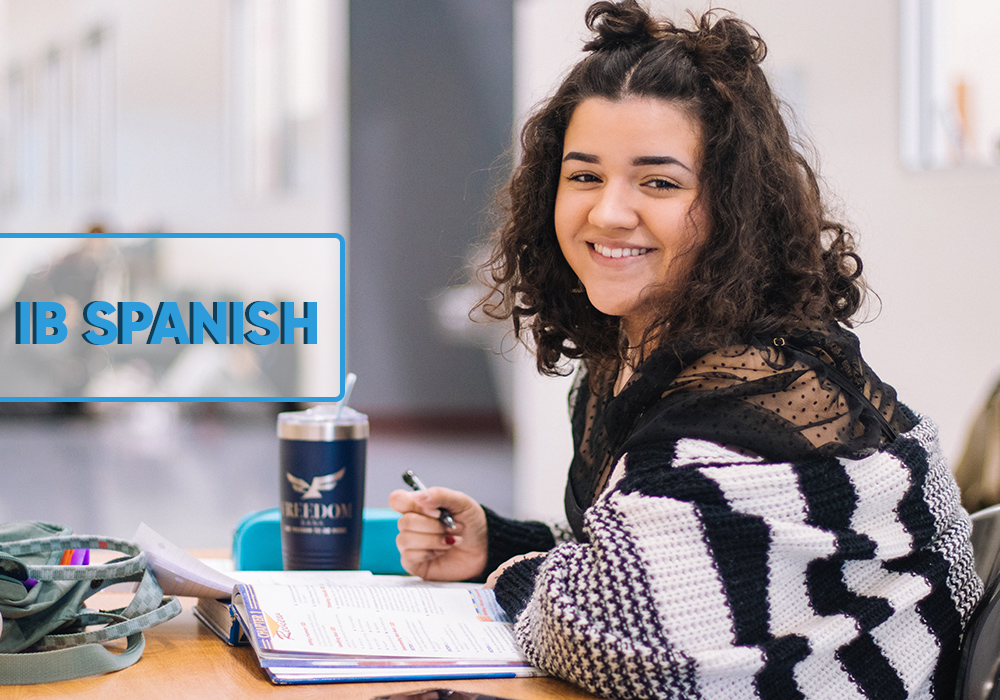How to get a 7 in IB Spanish?

Giasuib.com – Standing behind IB English, IB Spanish is one of the language subjects chosen by many students. Today, teachers at GiasuIB will reveal how to get a 7 in IB Spanish.
Related posts:
How to calculate IB percentage scores?
Time management strategies for the GMAT
Is learning IB Spanish difficult?
Why are students looking for how to get a 7 in IB Spanish? Is learning IB Spanish that difficult?
Spanish is the hardest language to learn. Spanish is spoken by over 570 million people across the world and over 480 million of these are native Spanish speakers. Besides, Spanish is the official language or co-language of over 20 countries, including Argentina, El Salvador, Venezuela and, of course: Spain.
The top reason for it being one of the hardest languages to learn was the speed: over 40% of respondents to our survey said that they struggled to understand native speakers in conversation because they were perceived to speak too quickly.
Spanish is the second fastest language, with a native speaker saying nearly 7.82 syllables per second. When you compare this to the much slower languages of English (6.19 syllables) and Mandarin (5.18 syllables) it’s easy to see how learners of Spanish can struggle to keep up.
For more: IB exam preparation in HCMC
Understanding the difficulties of students when starting the IB Spanish course, we at GiasuIB have compiled a number of learning methods to get a score of 7 IB Spanish for students to refer to and apply:
- Understand how to familiarize the language
There is always an efficient way to achieve a task. The same goes for language acquisition. If you are struggling with Spanish, the first thing you need to do is learn 1000 common Spanish words. Having this database at the back of your head will not only act as a foundation for enhancing your Spanish skills but will also allow you to start putting these words into context. Like any language, every word has a different meaning depending on the way it is used. Although you will learn 1000 Spanish words, you will gain the possibility of expressing yourself in many ways based on those 1000 words.
- Increase reading of materials and books in Spanish
Reading a language has its perks. Not only are you exposed to a different world of literature, but you also get to notice the subtle difference between the spoken and written language. The best trick to motivate yourself into reading Spanish articles is by starting with children’s storybooks. These books have the most simple sentence structure and will act as a stepping stone into the world of Spanish reading. Once you start advancing in your Spanish level, you will begin to realise that the language will have a different type of tone and sentence structure depending on whether the article is a formal one (that is a newspaper, an official letter, etc.) or an informal one.
For more: Why is it important to study Math and Science in English?
- Using cultural works such as music, movies, to expand language knowledge
If you want to make learning Spanish more fun, applying music, movies, stories, etc. We live in a full world where content is available in different languages. Spanish language shows, documentaries and movies are a fun way to improve your language skills for exams. Note that this will work when you watch these shows in their original audio and don’t cheat by turning on English subtitles. The best way is to use Spanish subtitles and jot down words you are not familiar with.
- Practice with friends
The best way to practice a language is to speak it. Getting a friend with whom you can talk in Spanish is the key to mastering Spanish for your IB exams. Not only will it help you in preparing for your Internal Orals, but it will also give you a certain level of confidence which will allow you to grasp the language better. It will be ideal if you can find a friend who speaks Spanish in school.
For more: IB exam preparation with IB preparation classes
